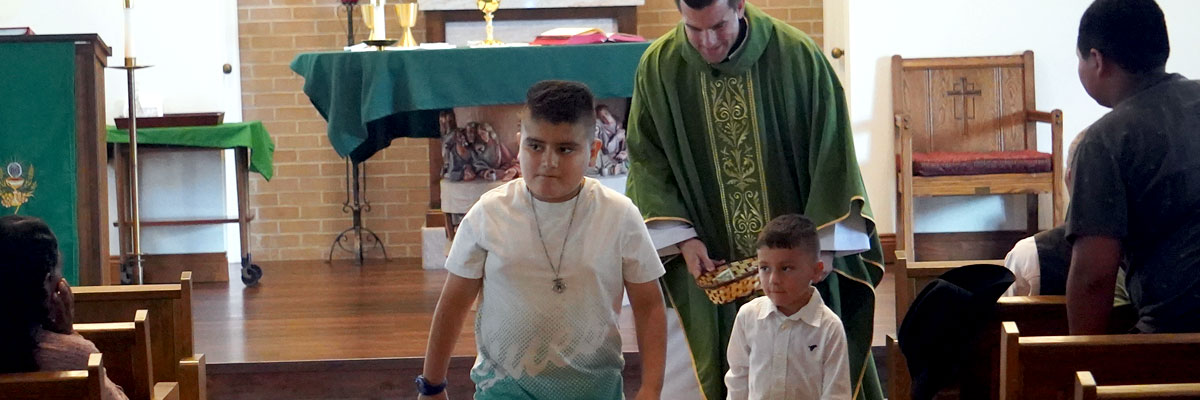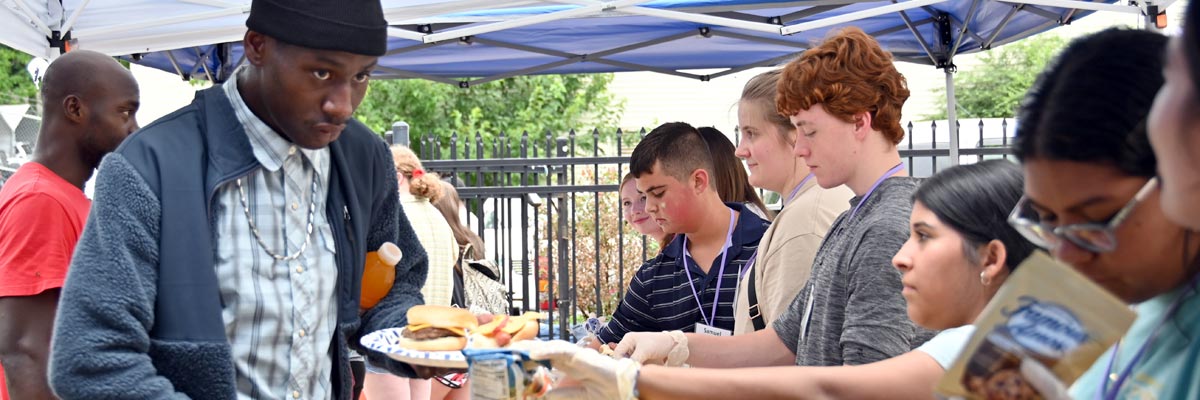Official Website of the
Catholic Diocese of Little Rock
28th Sunday in Ordinary Time, Year C 2022
Published: October 9, 2022
Bishop Anthony B. Taylor preached the following homily at Sts. Peter and Paul Church in Lincoln and St. Joseph Church in Fayetteville on Sunday, Oct. 9, 2022.

Bishop Taylor
Who are the people who have helped you become who you are today? One of them is certainly your first grade teacher. She taught you to read and write, and what a difference that has made in your life. Most of us have jobs that depend on us being able to read and write.
So, do you feel grateful to that teacher every time you read something? Or had you forgotten about her until just now when I reminded you of her?
In today’s Gospel Jesus encounters 10 lepers. They had a contagious, disfiguring and eventually fatal disease for which there was no medical cure. They asked Jesus to have pity on them and so he stepped in and healed them. Not only did he make a difference in their lives, he literally gave them their life back, restored them to their families and to society from whom they had been quarantined.
What attitude do you bring to your worship? Do you come to Mass with the same gratitude for the difference that Jesus has made in your life that we see evidenced in the one leper who returned to give thanks in today’s Gospel? Or do you just take Jesus’ presence in your life for granted, like the other nine?
Now they didn’t have to beg any more — they could return to their former occupations — their jobs depended on them not having a contagious disease. Yet only one of them came back to thank Jesus. I’m sure the other nine felt grateful, but he was the only one who came back to say so.
I began this homily inviting you to think of the people who’ve made a difference in your life, people you’re grateful for. Well when was the last time you said thanks to your wife or mother for cooking all those meals and doing all that laundry? Or to your husband or father for all he does to provide for your family?
A lot of marriages and families would be a whole lot happier if the members said thanks more often. An attitude of gratitude would then begin to take root in the home and extend to the children who naturally model themselves on their parents. The more you say thanks, the easier it becomes and soon you find even more things to be grateful for. Things you hadn’t even noticed before.
This attitude of gratitude makes all the difference in the world. It changes who you are on the inside. You feel happier and start having a smile on your face most of the time. But like the now-healed lepers in today’s Gospel, you have to express that gratitude with words, and the more you express your gratitude for these things and for these people in your life, the more grateful you feel. That attitude of gratitude builds on itself, increases with use, and puts you on a constant upward spiral.
And the same is true in our relationship with God. What attitude do you bring to your worship? Do you come to Mass with the same gratitude for the difference that Jesus has made in your life that we see evidenced in the one leper who returned to give thanks in today’s Gospel? Or do you just take Jesus’ presence in your life for granted, like the other nine?
Jesus has saved you, set you free from the contagious and disfiguring leprosy of your sins and healed your brokenness — whatever that is — or certainly is willing to do so, especially through the sacrament of reconciliation if some sort of spiritual leprosy (habits of sin, addiction) has taken control of your life.
And now you are in his Church, which is the best place to fall at Jesus’ feet and thank him because he is really present among us — when two or three are gathered in his name, and especially in the Eucharist, a word that literally means “thanksgiving” in Greek. If you gather every week to give thanks to Jesus — really and not just with words, consciously giving thanks, not just putting in your time — this attitude of gratitude will begin to take root in you and soon it will become your very nature.
You’ll find even more things to be grateful for, putting you on a constant upward spiral in your relationship with God and with everyone else, and this changes you on the inside. In our relationship with God, this attitude of gratitude makes all the difference, and not only in this world, but also more importantly, in the next.









